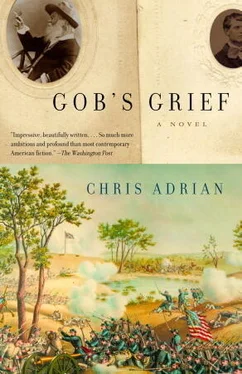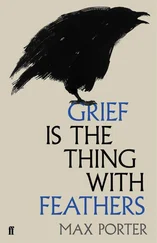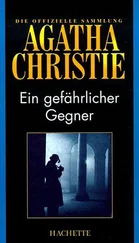“He’s dead!” the boy wailed. “He has died, and nothing can bring him back!” Tomo reached out to console him, but the boy dropped off the rail and ran away.
“What do you remember of your youth?” Maci would ask him. It was a question she reserved for her rare solemn moods. A friend also to Tomo’s wife (she’d introduced them to each other), she was often a visitor at their house. She’d been visiting Tomo all his life, with such frequency, when he was younger, that she had been nearly a constant presence. Now her visits were more rare. Five or six times a year she’d take time off from her career of political agitation and come to Brooklyn.
“Not very much,” Tomo told her again at her last visit, the same answer he always gave her. “When we were small, Gob and I used to play in a clearing in the orchard behind the house in Homer. He liked to play games called Fredericksburg and Chancellorsville — we had scarecrows dressed up as Confederate soldiers at whom we would shoot with toy muskets made from apple boughs.”
“Yes,” Maci said, and was silent a moment. “My friend,” she said, “I don’t think memory is to be trusted. I used to think that madness was the chief enemy of joy, and then I thought it must be hypocrisy, and then it seemed very clear that it was mortality. But in my late days I think it is memory that keeps us all ever from being happy.”
“My dear lady,” Tomo said. “Learn from me. I am very happy.” It was the truth. Her visits made him happy. From the next room his wife threw off happiness like heat from her person. And yet, thinking of the orchard in Homer, he suddenly remembered how he had hurt his brother, how he had been a coward and refused to go along when Gob ran off to the war. Tomo closed his eyes and inhabited that moment, with Alanis Bell’s warbling ringing in his ears. Over and over he sent his brother off to die without him.
“Why are you crying?” Tomo asked the boy. He was three-fourths of the way across the bridge, and about one-fourth of the way to his destination, when he saw the boy, leaning against the railing and sobbing. Every other passerby seemed completely unmoved by the boy’s display. He was about seven years old, with long, shining brown hair that fell past his shoulders and down his back. He wore a neat, old-fashioned black suit. In that moment, he was not at all familiar to Tomo.
“He’s gone!” the boy said. “Gone forever!”
“Who?” Tomo asked. “Did somebody jump?”
“Who?” the boy asked him back, looking up at him with black eyes that had more anger than sadness in them. “Who do you think? They’re all gone. All of them, never to return, and before them all my brother is gone, gone for always.”
“There now,” Tomo said, reaching out to touch the boy on his head. “My brother, he died, too.” He leaned down slowly, sure he heard himself creaking, to better comfort the little fellow. “It is a difficult thing, the death of a brother,” he said. The boy smiled, then, and darted forward like a snake. He kissed instead of biting, a dry little peck, but it burned horribly where he planted it on Tomo’s cheek.
“It’s a difficult thing,” the boy said, and Tomo felt dizzy. He had a falling sensation, and he was certain he had managed somehow to tumble off the bridge. He raised his arm up over his head in the attitude of Odlum, and prepared to meet the water.
“Goodbye, my love,” he said, speaking to his wife. He heard a noise like the ocean, or the breathing of a giant, and he was overcome with desire — he opened his eyes and wanted the whole far shore of Manhattan and all the tall buildings on it; he wanted the bodies of every person passing him where he stood with his arm up over his head, still feeling as if he were falling through endless spaces of air, he wanted to put his hands under their dresses and shirts, to grab at their flesh with his dry old hands.
“Excuse me,” said a lady walking by, because her dog had nipped at Tomo’s shoe as they passed. He took down his arm and looked around. There was the boy, standing a few feet off. Tomo could not remember what they had been discussing. He tossed the little man a coin, because he knew every child likes a nickel to buy a bag of candy with, and every child liked how Tomo could make a coin spin in the air. The boy caught the coin in his mouth and seemed to swallow it.
“I only wanted to see you, Uncle,” the boy said, and then he ran off towards Brooklyn, ducking between pedestrians. Tomo turned and walked on, thinking, just for a moment, that the boy was very familiar, after all, because he suddenly knew how the boy had been haunting him all his life — Tomo had seen him all over Manhattan and Brooklyn, far away in London and Paris, in Cuba, Hong Kong, Portugal, and Morocco. There was no place where he was not. Tomo kept walking, thinking that very soon he would remember why the boy was so sad, and why he never got any older, but as Tomo got closer to Manhattan he began to forget about him. Walking up to the terminal he stepped over the shadow of a streetlamp and paused to read a sign far ahead — though his joints were ruined, though his heart was weak and his bladder was nervous, his eyes were quite sharp. “If the baby is cutting its teeth,” it advised, “use Mrs. Winslow’s Soothing Syrup.”
“What baby?” Tomo asked aloud, and then he walked on.
“Would you like to go faster?” his mama asked him. They were driving in a speedy Talbot-Darracq, her latest automobile. She kept a chauffeur, but always put him in the passenger seat, insisting on driving herself at high speeds all over her estate at Bredon’s Norton in England.
“No,” Tomo said, knowing she would go faster anyway. His wife didn’t like automobiles. She had remained at the house to eat strawberries and doze in the sun while Tomo and his mother went out for a drive. She thought there was something obscene about automobiles. Tomo thought they were intriguing, though he would not ever drive one.
“It’s a shame they don’t make them any faster,” his mama said. She drove every day for an hour because she insisted that in doing so she was putting a little more distance between herself and death. Since her third husband, the banker Mr. Martin, had died, she’d become obsessed with her own mortality. “Not too close,” she’d say, if a person tried to kiss her, because she feared the pollution of touch.
“You quick widow!” Tomo called out to her, but she was half deaf, and could not hear him above the engine.
Often, by the time he’d reached the other side of the bridge, Tomo would have had enough of walking, so he’d take a cab to the church, struggling with his paper to pick out the address to give to the driver. It was a different church every time, and he was sure that by now he must have visited every one on the island. On that day in 1927 he went to a Catholic church on East Twenty-fifth Street, to a funeral, one that was especially dolorous and grim — that was how he liked them.
It was a sin, he knew, to lie to his wife, and probably also a sin to masquerade as a mourner. And yet wasn’t he sad for this person, this man who had died of a bleeding stomach, who was survived by a wife, seven children, and a full score of grandchildren? Tomo might go to the hospital tomorrow or the next day and fail to save a person like this man, a balding Irishman whose skin was too big for him to fit into anymore. He might go to that funeral, too, because he was drawn to them, because he had always been drawn to them.
Tomo sat in the back, and watched quietly, not crying until the end, when he approached the casket and looked in to see the face of the man. He put a hand over his mouth and wept, sure that all around people were wondering who he was, this well-dressed, hobbling old man who grieved so dramatically. A pair of girls led him back to his seat. They were sisters, he could tell. “Are you twins?” he asked them loudly, and they both told him to hush. One of them stayed with him, standing while he sat, her hand placed gently on the back of his neck.
Читать дальше












